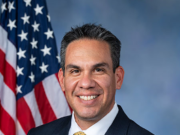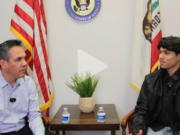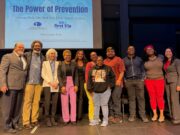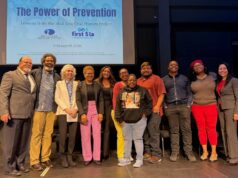
By Edward Henderson | California Black Media
Following orders President Donald Trump’s Department of Government Efficiency (DOGE) made in April, California recently lost over 5,600 AmeriCorps public service workers and over $60 million in funding.
AmeriCorps members improve community life by tutoring students, protecting the environment, aiding disaster recovery, fighting hunger, and connecting people to essential services.
Luckie Diwa, Program Director at Improve Your Tomorrow (IYT), says her organization partners with AmeriCorps to help more young men of color get to — and through — college. Due to the federal cuts, she says the program will have to scale back the number of mentors placed in schools.
“A lot of the cuts go to the heart of the work that we’re doing, making it harder for us to be able to have mentors go out and serve brothers,” Diwa told California Black Media (CBM).
“It seems like a very coordinated attack on the group that we serve, which is young men of color. It’s pretty heartbreaking just to watch a program that has had so much support from different parties under such a high level of attack right now,” Diwa added.
Jaylen Joyce, 20, was a youth participant in IYT and now serves as a mentor in the program.
“When I was in high school, I knew the areas where I needed improvements. Becoming a mentor, I was able to show the brothers in the program how to improve. It was a very reciprocal relationship. Taking that away — especially at a young age when you’re developing and trying to figure out what to do — is limiting. You’re limiting the number of people that can grow from that opportunity, especially in education, where mentors are placed in high schools and middle schools.”
In June, AmeriCorps won a temporary court reprieve to continue operating for another year. A federal lawsuit challenged Trump’s cost-cutting via the DOGE, which affected $557 million in grants for the AmeriCorps State and National program. The funds remain undistributed, leaving the program’s future uncertain.
Josh Fryday, director of the state’s Office of Service and Community Engagement, shared his frustration about the federal funding cuts and informed CBM about steps the state is taking to deliver some of the services lost or scaled back to the schools and the communities that need them most.
“This has put things into chaos — as the Trump administration does — and it’s hurting our communities. It’s impacting our communities in a very real way. It’s making it harder to tutor and mentor our kids who need it,” said Fryday.
Fryday said it’s also hindering the state’s ability to prepare for disasters.
“It’s making it harder to tackle some of our environmental climate goals, and it’s put not just our members who are serving at the time in a bad place, in a bad position, but it’s put our communities in a tough position, which is why we’re fighting it,” he added.
Part of this fight includes a lawsuit filed by California Attorney General Rob Bonta last month to have the Trump administration immediately release funds that Congress already allocated for AmeriCorps.
In the meantime, Fryday believes other programs the state funds will step into the gap.
“We have a College Corps program that provides debt-free pathways for students who serve while they’re in school. We have a Climate Corps program, and then we have a Youth Service Corps program that are all state-funded. So, we’re continuing to support service throughout the state and these jobs programs, and we’re not going to pull back as we wait to see what the Trump administration does.”
As for IYT, the organization plans to shift its focus to more fundraising efforts to continue the work they do in schools across the state.
“Although we had to reduce the number of mentors we can have this year, we’re still taking on that work,” said executive director Ray Green. “This is where we lean in on community. This is where we lean in on partnerships. Impact and investment are critical for brothers to be mentored at a high quality and be exposed to college opportunities.”

































